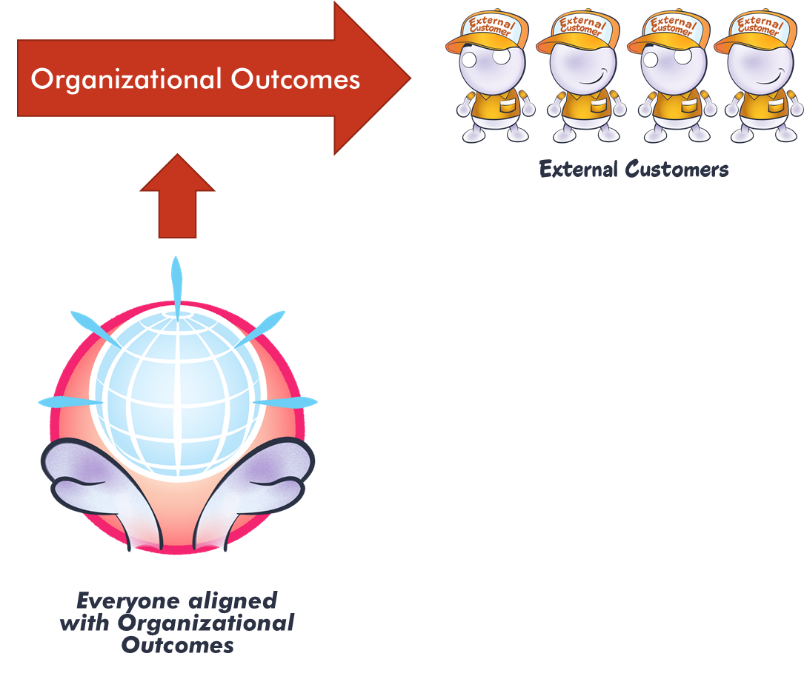Matrix Management Wiki
Home » The Accountability Key » 2F. Organizational Accountability
- 2F1. Organizational accountability is the commitment to act in the best interests of the organization, including, but not limited to aligning with organizational priorities and acting as a fiduciary of the organization’s resources.
- 2F2. Organizational accountability is really a restatement of the basic employment agreement that all members of the organization have accepted in exchange for getting paid to do a certain job: that they will serve the interests of the larger organization.
- 2F2i. Organizational accountability is one of the benefits of having employees rather than subcontractors.
- 2F3. Figure 2.7. Organizational accountability.

- 2F4. Organizational accountability for leaders includes the accountability to:
- 2F4i. Define the organization’s interests.
- 2F4ii. Define organizational priorities and create alignment around them.
- 2F4iii. Ensure the whole organization is successful.
- 2F4iv. Optimize the organization as a whole.
- 2F4v. Help to create organizational standards and align everyone to them.
- 2F4vi. Act as a fiduciary for the organization’s resources.
- 2F5. Organizational Accountability for professionals includes the accountability to:
- 2F5i. Make sure the work he accepts accountability for is aligned with the goals and priorities of the organization.
- 2F5ii. Align each of his deliverables with the needs of his customer(s) as well as with the outcomes of the team.
- 2F5iii. Carry out organizational policies, procedures, standards, processes, etc.
- 2F5iv. Suggest changes that could improve how the organization functions.
- 2F6. Principles of Organizational Accountability:
- 2F6i. Principle #1: Each leader owns the entire organization.
- 2F6ia. The leader must represent the interests of the organization at all times. It is part of the fundamental role of a leader.
- 2F6ii. Principle #2: Every leader owns all the goals, policies, procedures, and practices of the organization.
- 2F6iia. This follows from the last principle. If the leader owns the organization, he also owns what it does. Therefore, each leader owns the organizational policies, procedures, and practices of the entire organization. This ownership applies whether or not a leader has had any participation in crafting those policies, procedures, or practices.
- 2F6iib. The leader must represent all organizational policies as his own when communicating and deploying them.
- 2F7. Rules of Organizational Accountability:
- 2F7i. Rule #1: Every leader has organizational accountability.
- 2F7ii. Rule #2: Organizational Accountability Principle #1 takes priority over Principle #2, which means that if the policies, procedures, or practices are not in the best interests of the organization, the leader must work to get them changed. If an action is not in the best interest of the organization, she must endeavor to correct it.
- 2F7iii. Rule #3: Leaders play a fiduciary role with regard to the organization’s resources. They must ensure that all resources are used for the good of the entire organization and that they are used effectively and efficiently.

